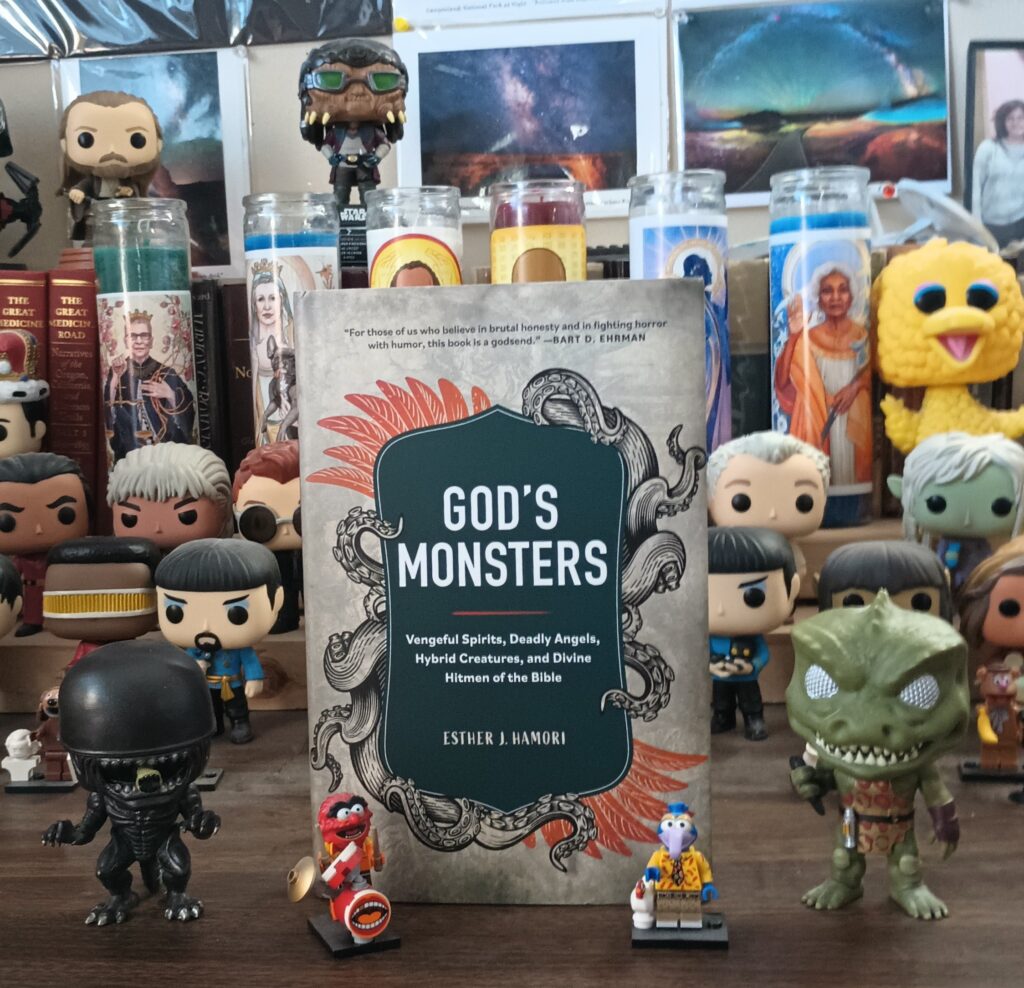Title: God’s Monsters: Vengeful Spirits, Deadly Angels, Hybrid Creatures, and Divine Hitmen of the Bible
Author: Esther J. HamoriPublisher: Broadleaf BooksGenre: Religious Non-fictionYear Published: 2023Number of Pages: 296Format: HardcoverISBN: 9781506486321
Price: $24.69
Reviewed by Conor Hilton for the Association of Mormon Letters
God’s Monsters: Vengeful Spirits, Deadly Angels, Hybrid Creatures, and Divine Hitmen of the Bible is a delightful, accessible guide to the monsters of the Bible. Esther J. Hamori opens and closes the book with some personal notes that elevate the stakes and lend a sense of heft and emotional weight to an otherwise punchy, pop-culture-reference-filled, fun read. Hamori weaves together academically rigorous scholarship and movie and TV references with ease and a playful, yet thoughtful sensibility.
God’s Monsters is packed with fascinating little tidbits, with each chapter focusing on a different ‘monster’ of the Bible, some categories of beings, and some singular creatures or entities. Hamori draws on a wealth of scholarship and deep familiarity with the source texts in their original languages, offering her own translations throughout. I found myself continually stopping what I was reading and catching my wife’s attention to share factoids and insights from the book.
Hamori has changed how I’ll approach the Bible and think about its monsters. One particularly interesting section deals with Leviathan, talking about the Book of Job (in the running for my favorite book of scripture). Hamori discusses the ways that God’s monologue to Job about Leviathan mirrors ancient poetic patterns of praise and adoration, the same poetic genre that the Song of Songs is a part of (a genre that is not always romantic or sexual, as it often is in Song of Songs). God LOVES Leviathan! I had never noticed or thought to read that passage that way, and now I’ll be gleefully puzzling over what that might mean for how I tend to read and think about the Book of Job.
The entire book is provocative and faithful. Some may bristle as they read, as Hamori draws attention to sections of the Bible where God and God’s entourage behave in troubling ways, but Hamori is not doing so to sow doubt or disbelief. Instead, Hamori hopes to cause us to grapple with what it is the Bible actually says. And to think about what it means for the beliefs and worlds of those who wrote and first shared these stories and what these stories may mean for us now.
Hamori makes her hopes along these lines more explicit in the conclusion, where she writes, “If we tame the monsters, and the Bible itself, we’ll miss the complex beauty and poignancy of the Bible’s collection of voices—how these ancient thinkers reflected on the nature of God and the world, how they wrestled and pondered. The Bible isn’t a solution to the struggles of life, but a reflection of them”.
Love that.
For those wanting to delve into the monsters and shadows and darkness of the Bible, seeking to be provoked, challenged, and ultimately, moved, God’s Monsters: Vengeful Spirits, Deadly Angels, Hybrid Creatures, and Divine Hitmen of the Bible is the book for you. Read and delight in Esther J. Hamori’s wit, vast knowledge, and playful insight.

